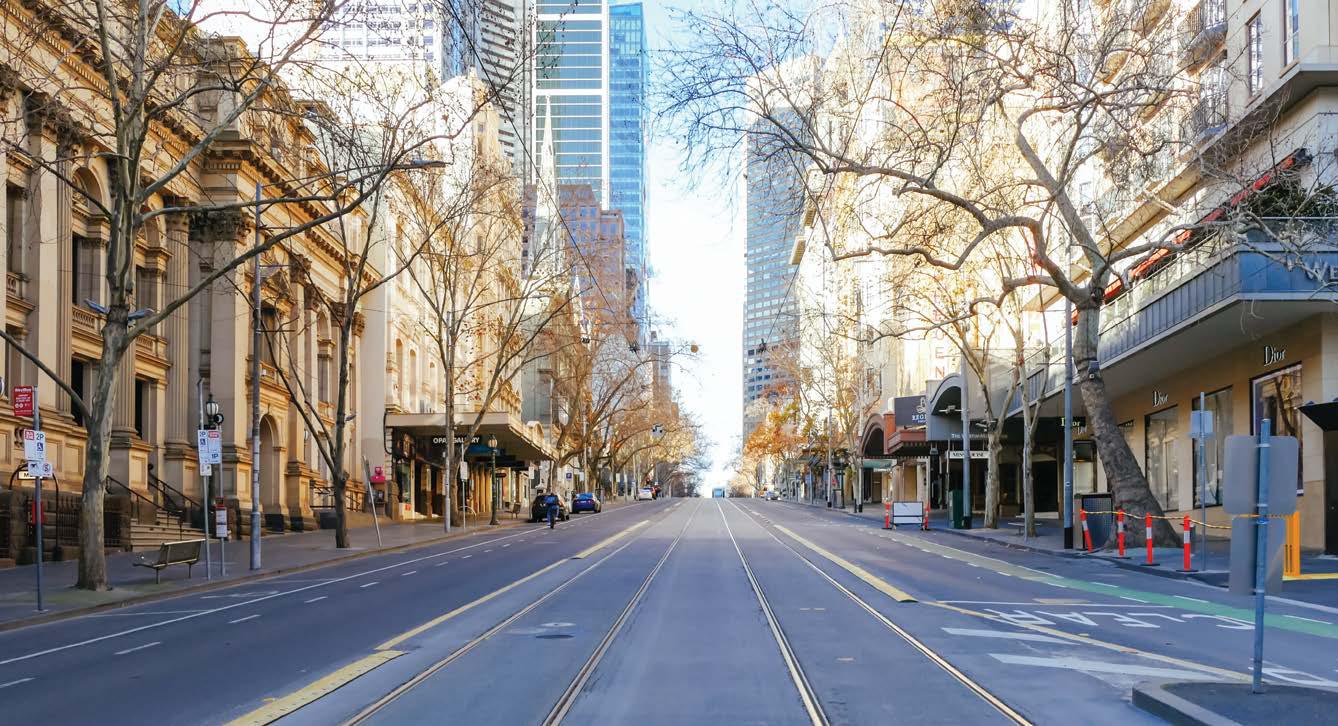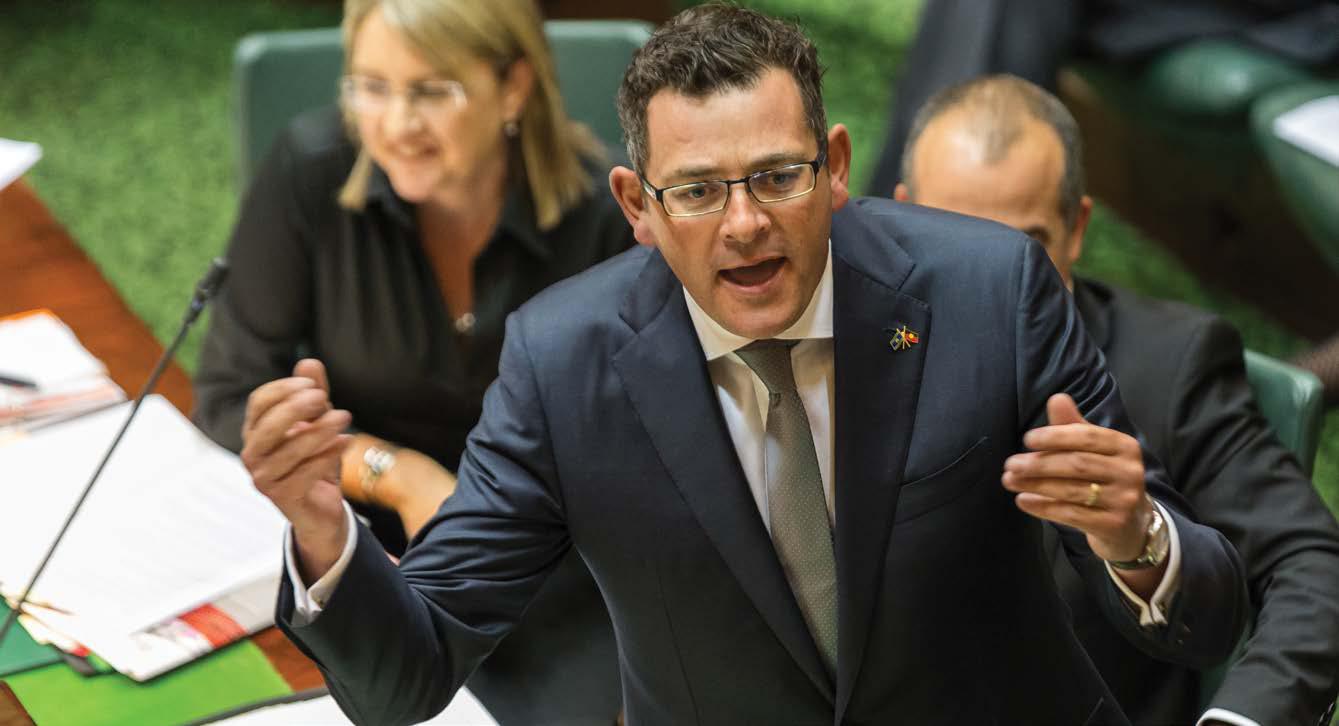Melbourne cedes its status as the world’s most liveable city to Auckland
Melbourne’s pandemic woes have dented its armour and left the door open for Auckland

Sometimes a predictable setback can hurt as much as a dramatic fall from grace.
Such is the case with Melbourne, the state capital of Victoria in Australia, whose treasured reputation as one of the world’s most desirable cities in which to live has suffered due to its rocky (to say the least) pandemic.
When The Economist Intelligence Unit published its latest global liveability rankings in June 2021, it reflected what many people had been expecting.
Auckland, New Zealand’s booming capital, was named the world’s most liveable city. Melbourne dropped to eighth spot after eight consecutive years at the top of the list, tied with Geneva in Switzerland and below rival Aussie cities Adelaide and Perth.
Melbourne’s precipitous fall attracted headlines. But after a pandemic marked by rolling lockdowns—including a brutal four-month stint that was one of the world’s strictest—few analysts were surprised at the very public hit.
Indeed, the ability to contain the spread of the pandemic while maintaining a high quality of life and freedoms for residents was a key factor in Auckland’s ascendancy.
“The progression for Auckland’s rank is predominantly because of New Zealand’s ability to enforce strong border closures and control the spread of the virus effectively,” says Akshay Rathi, a researcher at the Economist Intelligence Unit.
Kiwi premier Jacinda Ardern’s “zero-Covid” strategy has attracted its share of criticism. But life in New Zealand has been allowed to continue largely as normal during the pandemic, albeit with periodical restrictions and some of the world’s tightest border controls.
Contrastingly, the policies enacted by Victoria’s Labor state government led by Premier Daniel Andrews have been bitterly divisive.
Melbourne was locked down six times for a total of 263 days. Victoria’s debt burden is anticipated to reach almost AUD200 billion by 2025 on the back of pandemic-related relief and loss of revenue. With the state’s credit rating downgraded to the lowest of any Australian state or territory, the economic outlook for Victoria remains challenged at best.
Some Victorians savage “Dictator Dan” for botching the hotel quarantine system that paved the way for a serious outbreak and the longest, most stringent lockdown. Others hail him as a leader willing to take tough decisions to quell the virus. What Melburnians of all stripes agree on is the damage the last two years has inflicted upon both “Brand Melbourne” and the city’s real economy.
“It would be remiss not to acknowledge that government handling of the pandemic was part of The Economist’s Intelligence Unit criteria for assessment in 2021,” says Rob Burgess, national director of research and strategy at property advisory experts Charter Keck Cramer.
“Melbourne’s ability to rebuild its brand and perhaps, more importantly, the attributes which made it so desirable in the first place are highly unlikely in the next two to three years. Beyond that, only time will tell. The current trajectory must be halted to enable a new sense of optimism and confidence.”

Observers agree that the pandemic has exacerbated Melbourne’s woes. But they say that cracks were apparent in the city’s finely honed façade before the global health crisis. Long-term challenges include housing unaffordability, increasing congestion, and an economy heavily reliant on population growth and deteriorating productivity.
Melbourne is growing faster than most cities of similar size in developed countries. Population growth averaged more than 2.5% a year between 2011 and 2018. Activities and jobs have been buoyed by this strong growth.
However, the downside has been increased demand for healthcare, education, and other essential and recreational services. It has also placed increasing stress on the city’s public services and transport system. These factors have contributed to making one of the world’s most liveable cities increasingly less habitable.
More: Shelters from the storm: Asia’s best luxury boltholes
Inequality, meanwhile, continues to plague the city’s housing market. Median house prices reached another record high, soaring to AUD1.1 million in the final three months of 2021 on the back of buyers rushing back to the market after the city’s sixth lockdown.
Despite these challenges, Melbourne’s brand is far from completely tarnished. The city is famed for its outstanding arts scene, is home to several big-ticket sporting events, and has some of Australia’s finest restaurants. And population pressures have not altered the fact that the city retains high standards in healthcare and education as well as enviable infrastructure.
What is now required is a genuine focus on the many day-to-day challenges faced by Melburnians. Awards are nice, but only direct actions that deliver substantive change matter
Most observers agree that Melbourne’s long reign at the head of the global liveability index is over for at least the next couple of years. But they don’t necessarily buy into the notion that it has been superseded by its rival across the Tasman Sea.
“In my view, Melbourne has a better education system and sports and entertainment highlights than Auckland and job opportunities are better than in New Zealand,” says Benson Zhou, director of Asia markets for Savills Australia. “You can see that by how many Kiwis come over every year to live here. Lockdown is a big issue. But we are resilient and will bounce back.”
More: Proptech, a mainstay in future real estate transactions
Resilient too is Labor’s hold on power in Victoria. Despite the trials of the pandemic, polling ahead of the 2022 state elections—to be held in November—looks promising for the incumbent administration. With Australia adopting a strategy of living with the pandemic, harsh lockdowns may be a thing of the past. But Andrews and his government have a host of other issues to address as they bid to turn things around for the state and its biggest city.
Burgess concludes: “Do I think the liveability index matters? No, what is now required is a genuine focus on the many day-to-day challenges faced by Melburnians. Awards are nice, but only direct actions that deliver substantive change will matter.”
The original version of this article appeared in Issue No. 171 of PropertyGuru Property Report Magazine. Write to our editors at [email protected].
Recommended
Why everyone is moving to Selangor and Johor: Malaysia’s real estate comeback
Malaysia’s upturn in fortunes is especially prevalent in secondary destinations such as Selangor and Johor
Penang’s silicon boom: How the US-China tech war is supercharging local real estate
Penang’s booming semiconductor industry has created ripples within the local real estate sector
New leader, new opportunities: How Hun Manet is shaking up Cambodia’s real estate game
Hun Manet is overseeing decent economic growth and widening access to the country’s real estate market for foreigners
Singapore embraces inclusive housing reforms amid resilient demand
The Lion City’s regulatory strength continues to exert appeal for international investors








